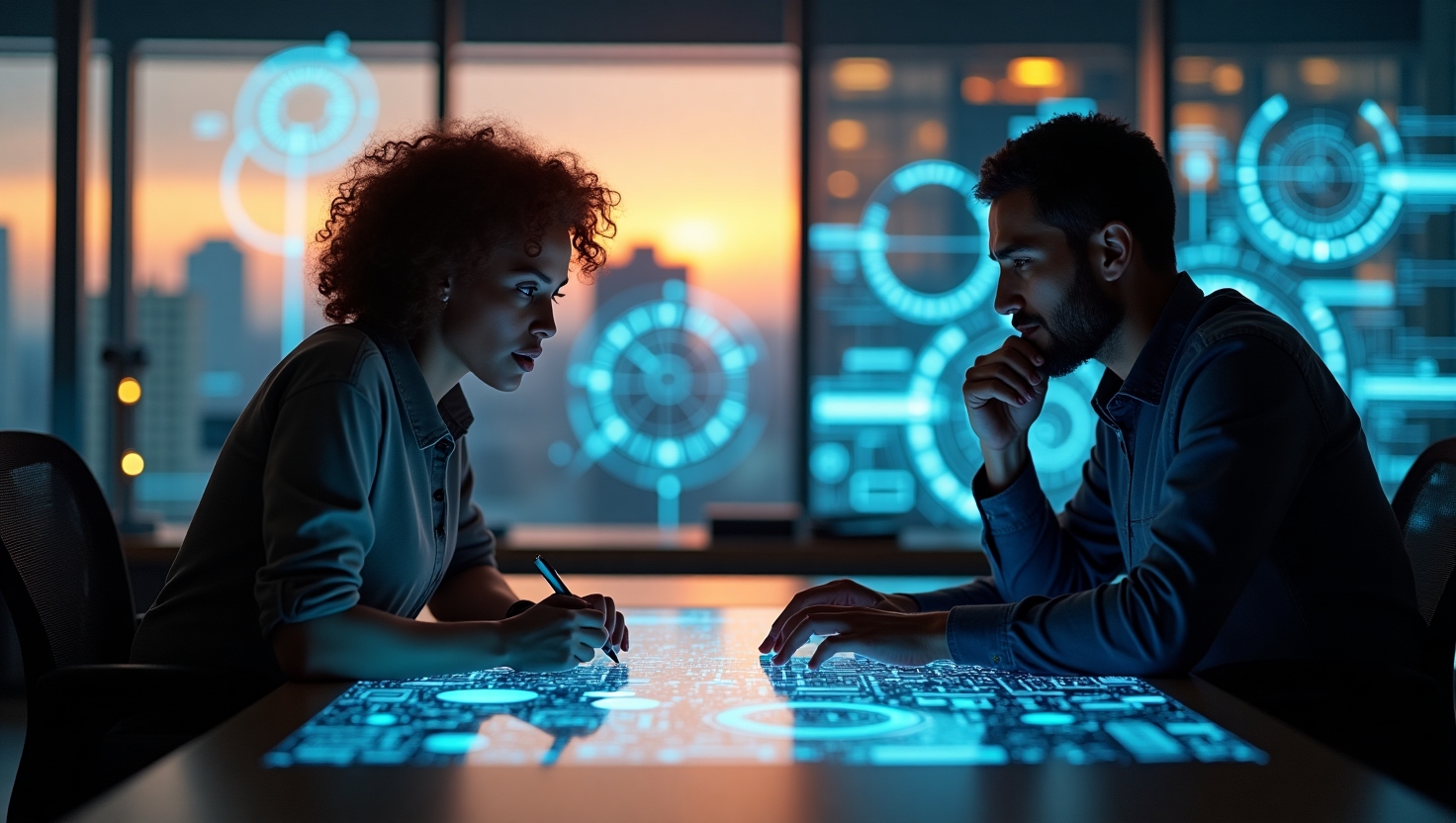The Transformative Role of AI in Media: Navigating the Future of Content Creation
Introduction
In today’s dynamic digital landscape, the intersection of artificial intelligence (AI) and media is revolutionizing how content is created and consumed. The infusion of AI in media is not just a technological trend but a signal of how deeply intertwined technology is becoming with creative processes. As platforms evolve to integrate AI tools, the implications are profound, stretching across platforms like Instagram and influencing the burgeoning creator economy. This exploration delves into how AI is reshaping the media industry, highlighting its transformative potential and ethical dilemmas.
Background
The media industry has undergone significant shifts, particularly with the advent of digital content creation. Initially, traditional methods, dominated by manual efforts, limited who could publish and share content. However, the rise of digital platforms, such as Instagram, catalyzed a massive shift, democratizing content creation and establishing what is now known as the creator economy. Here, creators of all sizes have found opportunities to monetize their passions and engage communities.
With AI tools entering this sphere, the boundaries of creativity are expanding further. Industry leaders, such as Elon Musk, have often cautioned about AI’s double-edged nature. While these tools boost efficiency and creativity, they also pose risks of eroding authenticity within creative industries. Musk’s insights echo the sentiments of many who acknowledge AI’s potential to disrupt traditional content creation while questioning its implications on originality and authenticity.
Trend
Current trends highlight how platforms like Instagram integrate AI to foster new opportunities for creators. For example, Instagram’s algorithms can now analyze user behavior patterns with such precision that they refine the kinds of content delivered to individuals. AI tools lower production costs by automating tasks such as editing and enhancement, which previously required significant manual intervention.
Adam Mosseri, head of Instagram, has emphasized that while AI empowers new creators by democratizing content production, it also presents challenges. The balance lies in empowering creators without diluting content quality or opening avenues for misuse. For instance, AI tools allow amateur creators to produce high-quality content previously achievable only by skilled professionals, thereby broadening the scope of creativity and reach (source).
Insight
As AI-generated content becomes more sophisticated, distinguishing between organic and synthetic content is becoming increasingly challenging. This blurring of lines raises societal concerns about authenticity and integrity. Mosseri notes the difficulties in distinguishing these polarities, emphasizing that it is essential for platforms like Meta to develop reliable labeling systems to maintain transparency.
The synthetic content generated by AI presents both opportunities and ethical challenges. As these systems become more adept at mimicking human creativity, the role of platforms becomes pivotal in maintaining digital ethics. Meta’s responsibility in labeling AI-generated content is not just about technology but about steering societal norms towards a future where AI complements rather than compromises creativity.
Forecast
Looking ahead, the creator economy is poised to evolve with AI tools driving its future trajectory. As technology blurs the distinction between creator and AI, the potential for misuse, such as deep fakes, remains a tangible threat. However, the resilience of the creator community—combined with informed, adaptable societal structures—can turn these challenges into opportunities for innovation and growth.
The forecast for the creator economy points towards a hybrid reality where AI-generated content and human creativity coexist symbiotically. Creators who leverage this hybrid model will find new avenues for expression and monetization, while society must adapt to discern and embrace these new content creation norms.
Call to Action
As AI continues to influence media, it is crucial for both creators and consumers to remain vigilant and informed about these technological advancements. Engaging in discussions about the ethical use of AI in media can pave the way for a more inclusive and creative future.
In this transformative era, adaptation is not just an option but a necessity. Whether creator or consumer, understanding AI’s role is key to thriving in this evolving landscape. Stay informed, stay engaged, and be part of shaping the next chapter of media innovation.
Related Articles: Learn more about AI’s impact on content creation from Instagram head Adam Mosseri’s insights.
